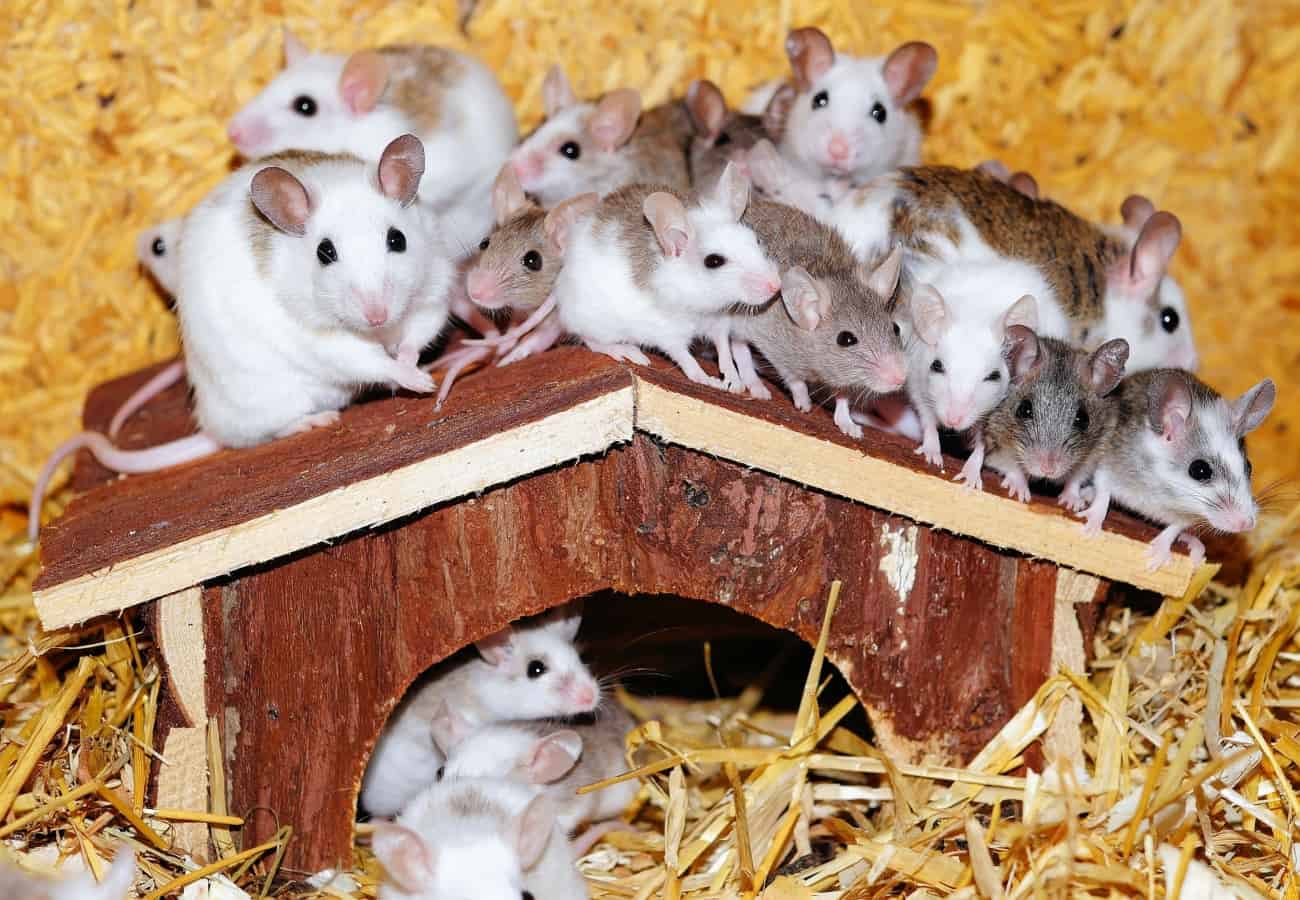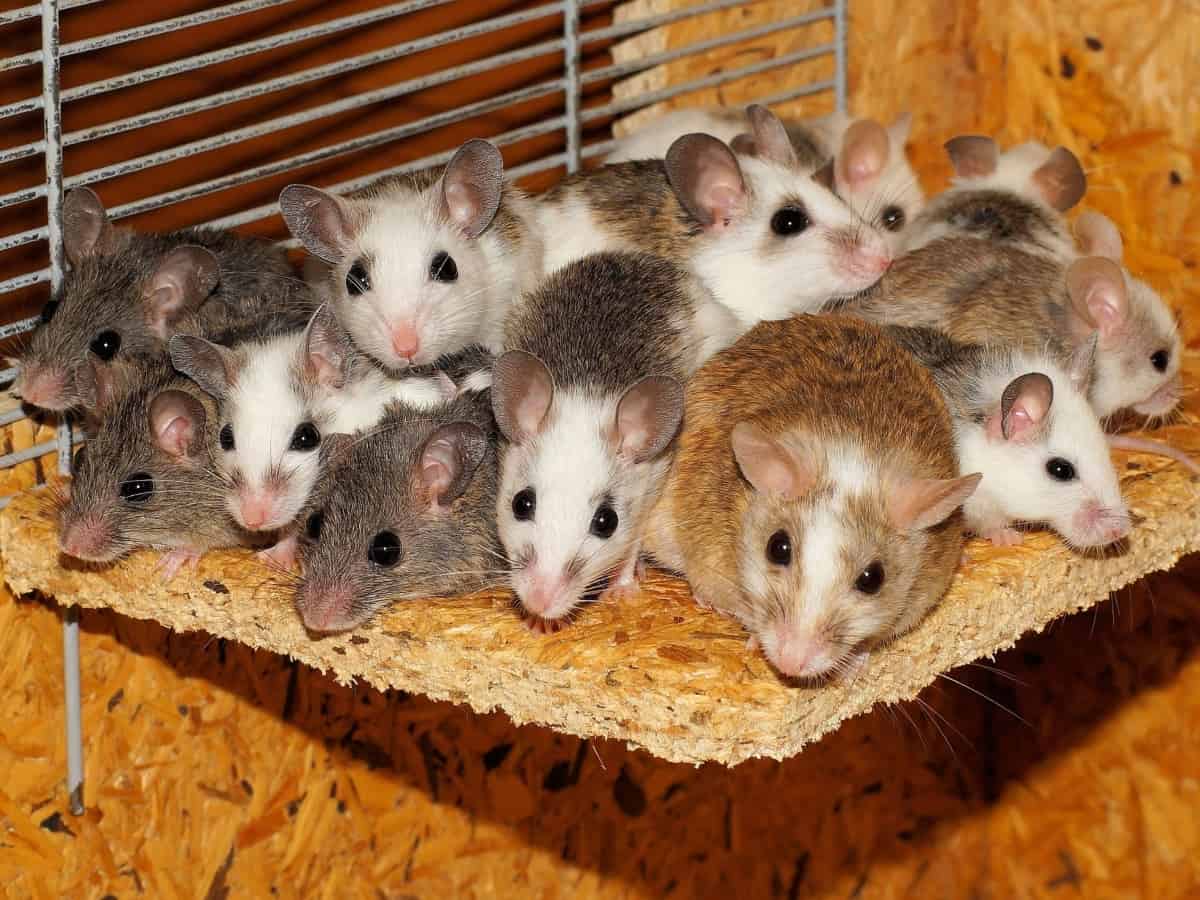Proudly Serving Northern New Jersey, Rockland County & Manhattan
Mouse control entails safely and effectively detecting, controlling, and preventing mouse infestations. For mice pest control to be effective, a certified and skilled mouse exterminator is required. To prevent all the issues that these rodents can bring about, act quickly if you see a mouse or detect any indications of an infestation.
Although doing your pest control can be successful, the best course of action for handling a mouse infestation is to hire a professional exterminator. After attempting do-it-yourself solutions, nearly half of the participants in a 2022 consumer survey stated they eventually hired an exterminator.
However, you must become knowledgeable about mouse behavior, take preventative measures, and identify efficient treatment options if an infestation happens if you want to keep mice out of your house or place of business.

Mice are small rodents that are worldwide in distribution, even though there are numerous species of mice, house, deer, and white-footed mice are the most typical ones to be found in your residence or place of business. Your home or place of employment will typically determine the kind of rodent infestation you have
There is a higher chance that field mice have entered your house or place of business if it is situated close to a barn or shed and in an area with more open space.
Given how quickly mice can proliferate, it’s critical to address the infestation and eradicate the mice as soon as possible. Generally speaking, mice have larger ears and shorter, thinner tails than rats. Mice are small animals with a gray coat.
You may need to use a different treatment for them because of their slightly different behavioral patterns. When the tail is included, the length of all three varieties is between 5 and 7 ½ inches. Here are a few essential qualities:
Mice possess exceptionally keen senses of taste, touch, smell, and hearing. Despite having poor vision, their other senses more than compensate for it.

A wild mouse’s lifespan in the wild might not exceed 18 months, but in captivity or after locating a stable home with consistent food supplies, they can live for up to two years.
Mice can stay in a building for much longer than anticipated if they have regular access to food and shelter, according to exterminators, if you have a mouse infestation in your house or place of business.
Nonetheless, given that mice breed quickly, infestations may linger in your house or place of business for years, contingent upon how big the nest has become.
You can smell the rodents, see them running around your apartment, or hear them moving, most often at night. These animals are typically observed running to and from normally unaffected areas or scuttling along walls.
Given that mice are highly nocturnal and secretive, seeing one is a clear indication of an infestation. Because other adult mice already occupy the more secure, hidden spots for mice to nest, the appearance of a mouse can therefore be interpreted as an indication of a large population.
Mice leave their droppings in places where they travel, live, or pause to forage for food. If a mouse population is still present inside a structure, it can be effectively determined by removing droppings and then conducting another inspection.
There are scratch marks on surfaces, burrows, and droppings as proof. Because they are drawn to food, mice will frequently enter your home through pipe routes and wall cavities. They are audible in the kitchen, basements, and loft areas.
Although it’s rare, it is possible to spot a mouse during the day, particularly if their colony has expanded. Because of this, it’s critical to take care of mice as soon as you think you may have them.
Mice pose a threat to material structures as well as people. House mice are probably the source of your mouse infestation. These are infamous for destroying electrical wiring inside walls and for gnawing through floors and walls.
Additionally, mice are carriers of a variety of diseases that can be contracted by coming into contact with their urine or excrement, or occasionally even contaminated food.
Although disease-carrying ticks can transmit illnesses to humans, house mice are more likely to carry infectious diseases that could infect you or your family members if you come into contact with them. The hantavirus, a serious respiratory disease that first manifests as fever, aches in the muscles, and lethargy, is spread by the dust from dried mouse droppings.
Breathing problems may arise from these symptoms if they are not treated, as they can lead to a buildup of fluid in the lungs. Although there isn’t a known vaccine or treatment for hantavirus, hospitalization is frequently not required. However, avoiding the risk entirely is preferable.
Additionally, mice can transfer the Salmonella bacteria by urinating, defecating, or even just walking across or touching surfaces such as kitchen countertops, pantry cabinets, and food boxes. Humans who come into contact with Salmonella can experience fever, diarrhea, and cramping. Although they shouldn’t last longer than a week, these symptoms are undoubtedly uncomfortable.
If you protect yourself from mouse urine and feces by wearing gloves, a face mask, and even goggles, you can prevent these illnesses and others. Do not sweep up pet droppings directly as this will likely transfer the harmful bacteria and dander to other areas of your house.
While wearing your protective equipment, soak the urine and droppings in a bleach solution for five to ten minutes. Then, wipe everything down with paper towels and double-bag everything.
Since mice are rodents, their incisors grow continuously throughout their lives, and as a result, they have to learn strategies for controlling the rate of dental growth. They will gnaw and chew on the wood in your house, including rafters and support beams, wiring, and occasionally even plumbing, to maintain control if they manage to get inside.
When rodents chew through the rubber covering on electrical wires, a house fire is just waiting to happen. House mice multiply quickly once they settle into your home, increasing the likelihood that they will stay for as long as they can find food and cause further damage to your property.
The first step in effective mouse control is to stop new mice from entering the house or building. Sanitation and exclusion are components of mouse proofing.
A professional mice exterminator from Titan Pest Services would be a good choice if you have a serious mouse infestation at your house or if you are having trouble getting rid of the mice in your home. Titan’s professional mouse exterminators are authorized to utilize specific chemicals and utilize efficient methods.
There are a few things you should anticipate when you contact the pest control business, for assistance with your mouse infestation:
To get rid of mice, Titan exterminators adhere to strict protocols. They use strategies that work for varying mouse species and infestation levels. Let’s examine the processes they adhere to:
Don’t forget to clean your place after a mice infestation!
Titan Pest Services wants to make sure you remember that the mice in their holes die out. You will have to give your house a thorough cleaning and get rid of any overgrowth that is growing next to your house. By doing this, the likelihood of a re-infestation will drop.
If you’re experiencing a mouse infestation, don’t hesitate to contact Titan!